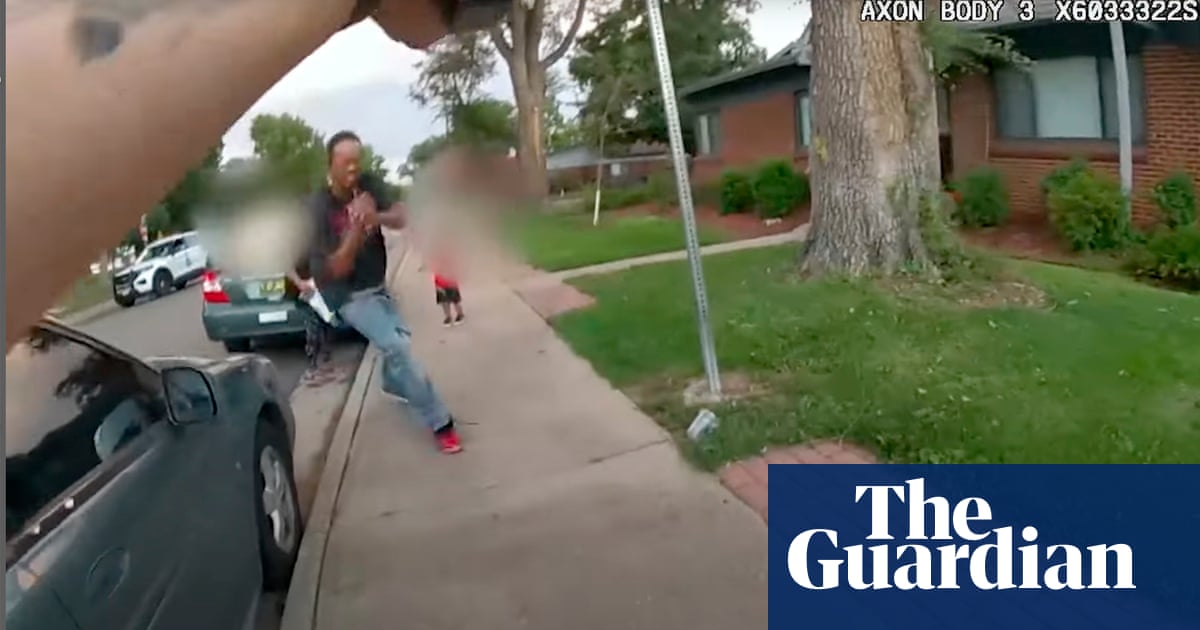
Hundreds of pastors rallied and prayed outside the trial of the three white men accused of murdering 25-year-old Black jogger Ahmaud Arbery in 2020, with the gathering on Thursday organized in response to a defense lawyer’s bid to keep Black church leaders out of the courtroom.
Inside the court house, the defense rested its case on Thursday afternoon, shortly after Travis McMichael, who fatally shot Arbery on 23 February 2020, testified that the younger man’s demeanor struck him as suspicious but that Arbery didn’t threaten him in any way before he opened fire.
Testimony had resumed in Brunswick, south-east Georgia, as the Rev Al Sharpton organized the large group of Black ministers.
Many carried signs reading, “Black pastors matter,” and some wore buttons with Arbery’s picture and the hashtag they were using for the case, “#JusticeForAhmaud.”
Last week, a defense attorney intensified frustrations in the coastal Georgia community when he said he didn’t want “any more Black pastors” sitting in the Glynn county courtroom with Arbery’s family.
Attorney Kevin Gough asked the judge to remove Sharpton, saying the civil rights activist was trying to influence the jury, which is disproportionately white. The judge refused, and later called Gough’s remarks “reprehensible”.
As the crowd grew outside, the Rev Jesse Jackson once again joined Arbery’s family in the courtroom on Thursday.
Sharpton told the rally that no one had questioned who is sitting with the defendants’ families.
“No lawyer can knock us out. Because no matter where you are, God is there,” he said. “We are going to keep coming until we get justice.”
Martin Luther King III, son of slain civil rights leader the Rev Martin Luther King Jr, addressed the throng saying: “It only takes a few good women and men to bring change.”
Prayer has been vital in helping Black people through centuries of slavery, violence and discrimination in America, said Arbery’s father, Marcus Arbery.
“That’s all we lived on. That’s all we had was prayer. What did our great-grandmothers depend on?”
Ben Crump, a civil rights attorney representing the Arbery family, predicted the defense would ask the judge for a mistrial because of the demonstration outside the courthouse.
“We need preachers to come pray for them in this insane situation, this inhumane situation,” he said.
Meanwhile, Travis McMichael testified that neighbors in the Satilla Shores neighborhood indicated something had happened in that area and he wanted to ask Arbery about it, but when he pulled up in his truck and told Arbery the police were on the way, Arbery began to run.
Asked how many times he had pulled up behind strangers in the neighborhood to ask them what they were doing there, McMichael said never.
Prosecutor Linda Dunikoski pressed McMichael on why he didn’t include some details of his testimony in his written statement to police, namely the part about telling Arbery police were on the way. Travis said he was “under stress, nervous, scared” at the time of his police interview and “probably being choppy”.
“What were you nervous about?” Dunikoski asked.
“I just killed a man,” McMichael said. “I had blood on myself. It was the most traumatic event of my life.”
“You were nervous because you thought you were going to jail, right?” Dunikoski asked.
“No. I gave them a statement,” McMichael said.
It was McMichael’s second day of testimony, a day after he told the jury Arbery forced him to make a “life-or-death” decision by attacking him and grabbing his shotgun.
It is the first time any of the three white men charged with murder in Arbery’s death has spoken publicly about the killing.
Prosecutors contend there was no justification for McMichael and his father, Greg McMichael, to arm themselves and chase Arbery when he ran past their Georgia home. The shooting deepened a national outcry over racial injustice after video leaked online.
A neighbor, William “Roddie” Bryan, joined the chase and recorded the video.
The three defendants have pleaded not guilty.
The McMichaels told police they suspected Arbery was a burglar.
Prosecutors say there’s no evidence Arbery – who had enrolled to study to become an electrician – had committed any crimes.
The trial continues.












